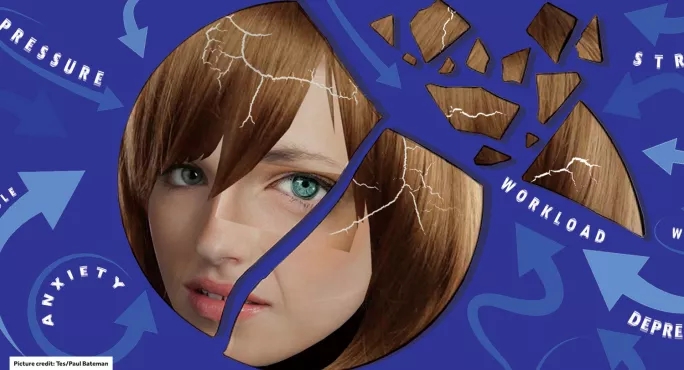I think we should talk about mental health. Everyone else is doing it. From sports and television stars to top royals, barely a week goes by without someone in the spotlight sharing their story and highlighting the issue. The words “mindfulness” and “wellbeing” are now commonplace: everywhere you look there are apps, colouring books, courses and treatments all designed to combat stress, anxiety and depression.
In education, too, mental health has become a big talking point. Stories about child mental health (and lack of support for it) abound. Similarly, it is not uncommon to read testimonials from teachers detailing how the job affected their own mental health.
It should, therefore, follow that it is now normal for teaching staff to discuss any mental health issues they may be having with colleagues and managers. Only, it isn’t. The one place you won’t hear much talk of teacher mental health is in schools. In my experience, we don’t discuss it until it becomes an issue too large not to be discussed.
Wellbeing in schools is entirely focused on the children. If a teacher talks or writes about mental health issues, it’s usually retrospectively, having quit the job in the wake of burnout. I have worked with teachers who are struggling, and I understand why they don’t ask for help.
Teachers are monitored for pretty much everything apart from their own wellbeing: we are so painfully aware of our own accountability that we mostly live life on a knife edge of competency, hiding anything that could be seen as a weakness from view. It’s also true that, as a breed, we are very bad at asking for help. Who would we ask anyway? School leaders are under even greater pressure. To admit that you are struggling would only have a detrimental effect on your career.
I once worked with a teacher who was so stressed her doctor insisted he sign her off for a few weeks. When she returned, it was to be told she wouldn’t be receiving the permanent contract previously promised as they couldn’t risk her “having another wobble”.
Many teachers would not suffer mental health problems if they weren’t teachers: their struggles are less mental health issues and more normal human reaction to the pressures. And while it’s nice to hear of schools prioritising staff wellbeing, we don’t really need tai chi and mindfulness. These do nothing to tackle the innate causes of teacher stress - still mostly workload, too many new initiatives and the relentless pressure to deliver on everything.
No one can deliver perfectly on every front all the time. In a survey by the NASUWT teaching union, 59 per cent of teachers said their mental health had suffered in the past year. The Office for National Statistics released figures suggesting female primary and nursery teachers were 42 per cent more likely to commit suicide than the average woman.
Those in power so concerned with school performance numbers would do well to consider these statistics, too. We need to talk about mental health.
Jo Brighouse is a pseudonym for a primary school teacher in the Midlands. She tweets @jo_brighouse




